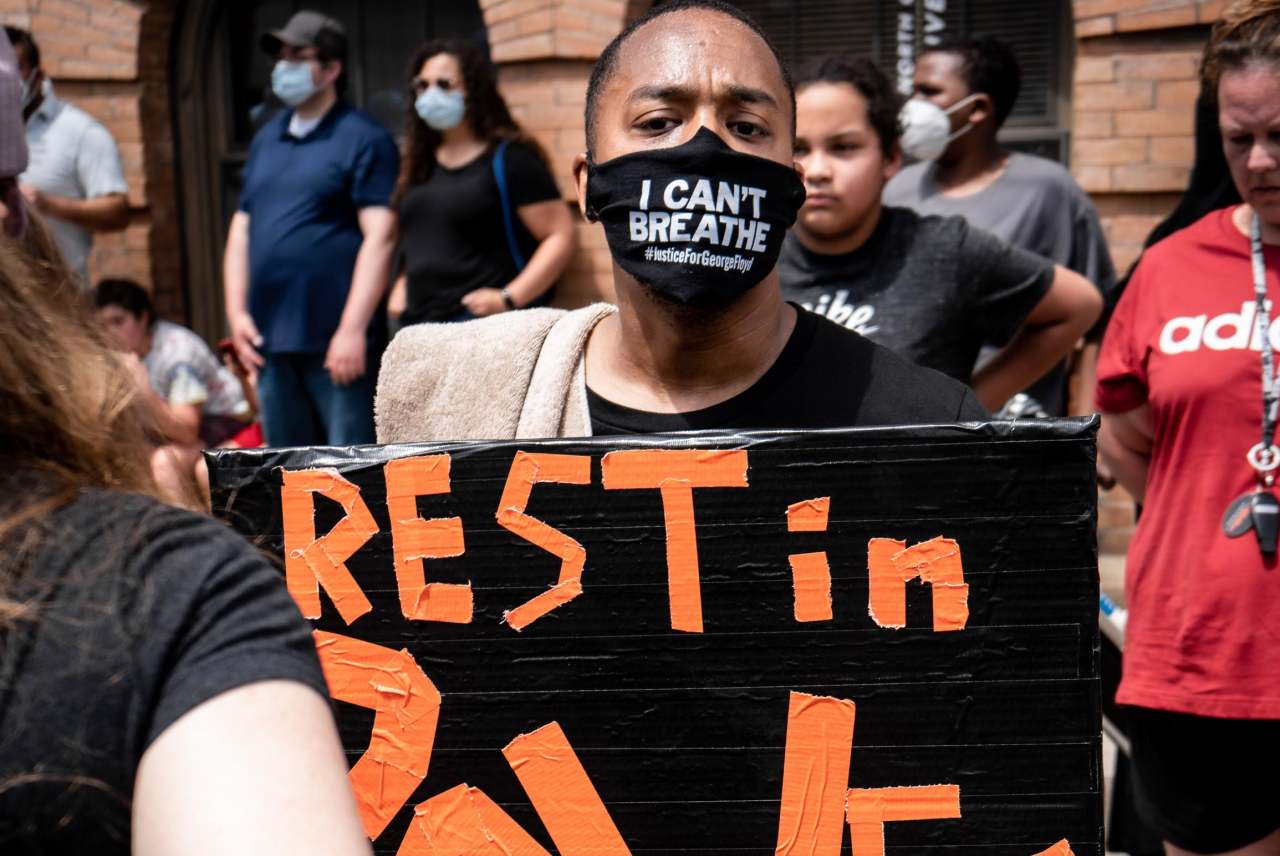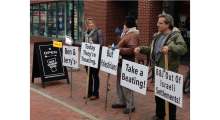In late May of 2020, a Black man’s life was ended under the knee of a police officer in Minnesota. His murder precipitated a new wave of racial justice activism in the United States and beyond.
Many corporations were moved to publicly make strong statements condemning racism and discrimination while expressing support for George Floyd’s family and the Black community at large.
Many of these statements came with promises to do better internally on issues of DEI (Diversity, Equity and Inclusion) and racial justice. Some companies provided support and outreach hotlines to their employees, worked to build stronger inclusion policies by adopting antiracist training, and donated to causes fighting for racial equity.
As the statements of solidarity, promises and money rolled in, many were left wondering if this time, societal change would really come.
As You Sow responded to this watershed moment, understanding that corporate promises, if left unattended, would dissolve into nothingness. As we always have, we looked to build structures for corporate accountability.
We were already working on a workplace equity program, which was benchmarking the S&P500 for its disclosures of key metrics around the effectiveness of their DEI programs.
The racial justice initiative has now been formed to also monitor corporate progress and commitments — to not only hold companies accountable for their claims of racial justice, but to also educate them on how they can change their policies and practices in favor of a more just and right business model.
The initiative focuses on 18 key performance indicators; nine based on statement language pulled directly from a company’s initial response to Floyd’s murder, which account for 20% of the corporate score, and nine based on corporate policies and practices, ranging from DEI disclosure, to racial justice donations and community engagement, which account for 80% of the score.
Unfortunately, our research findings across the workplace equity and racial justice databases are troubling. Despite 76% of companies in the S&P250 having made an initial statement on racial justice, only 20% released their Equal Employment Opportunity (EEO-1) data, the best practice standard for workforce composition disclosure.
EEO-1 data is a standardized form collected by the Equal Employment Opportunity Commission for almost all public companies which shows employees gender, race and ethnicity by career stage. It is not required to be publicly released.
A far lower number, only 9%, of companies have made available statistical data on recruitment, hiring, retention, or promotion of Black employees. These data points are essential in demonstrating how inclusive a company is.
The strong indication from our initial research is that many companies are willing to speak to racial justice as a broad problem, but far fewer are looking inward and sharing meaningful information on how they treat their own existing and potential employees.
Statements condemning racism and hatred were also often non-committal and vague. In a moment when the whole world was listening, only 22% of companies acknowledged systemic racism by name, which demonstrates that the underlying cause of racial injustice is still not clearly understood.
Even fewer companies, just 7%, promised to incorporate an anti-racist framework into their organization.
The top five scorers on our Racial Justice Scorecard are Coca-Cola, Dow, Microsoft, Pepsi, and Alphabet. Coca-Cola made a strong impression across our KPIs, scoring a 75%, with a powerful initial statement, backed up by policies, practices and disclosure of EEO-1.
We hope to see Coca-Cola leading the way in the Consumer Staples sector for attentive action on racial justice issues and disclosure moving forward. Dow tied Coca-Cola for first place, signifying their commitment to become an antiracist organization in their initial statement.
It is important to highlight the commitments and language used by Dow in their statement, in order to further their progress on disclosure of EEO-1 and hiring, retention and promotion rate data.
However, Coca Cola and Dow are both violators of Environmental Justice issues and we intend to score this with more weight when we roll out the S&P500 in February, so we expect to see these companies position drop.
As reported in Earth Island Journal, Dow, one of the largest petrochemical producers in Louisiana, has located toxic manufacturing facilities along the Mississippi River between New Orleans and Baton Rouge, home to many Black communities.
Coca Cola has come under fire for focusing marketing efforts on young Black people who see on average 2.3 times as many ads for sugary drinks as their White counterparts. It is therefore encouraging to see these companies making such strong statements of support, indicating an openness and willingness to effect real change, however their core business models will be more intensively scrutinized in our next round of scoring.
The bottom five scorers are D.R. Horton, Digital Realty, Exxon, O’Reilly, and Public Storage. The Real Estate sector was the lowest scoring, and had two companies in our bottom five. The companies in our bottom five scored zeros across the board on our scorecards, having made no initial statements, nor having policies and practices that are in line with our KPIs.
During this time of intense change, corporations must realize that leaning into the racial justice movement long term is vital for their bottom line.
Using our racial justice and workplace equity scorecards, we will engage with leaders and laggards in each sector to lead them on the path to end their complicit relationship with racist policies by encouraging transparency and disclosure on racial data, incorporating antiracism into their corporate cultures, and encouraging them to engage with Communities of Color on a consistent and fruitful basis.
As companies join us on the path, we will continue to update our scorecards with corporate progress. As You Sow hopes to support companies in thinking critically about using their power to create tangible and lasting change on issues of racial equity in America.
Olivia Knight leads As You Sow’s racial justice initiative.
Meredith Benton is As You Sow’s workplace equity initiative program manager. She is also principal at the consultancy Whistle Stop Capital.




